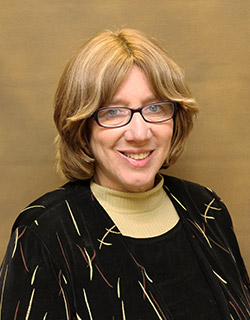Hope for People Living with Low Vision
August 16, 2021Low vision, which is different than legal blindness, affects more people than you may expect, including children. One in six adults over 45 has low vision, while one in four people over 75 are living with low vision. The term low vision refers to people who have vision loss that can’t be corrected by glasses or medical or surgical treatments. The most common causes of low vision in adults include age-related macular degeneration, diabetic retinopathy, glaucoma, and stroke.
“Vision is essential for people to interact with their environment and other people,” explained Janet Sunness, MD, Medical Director of Richard E. Hoover Low Vision Rehabilitation Services at GBMC. “But many people aren’t aware that low vision rehabilitation services can help them become more independent and take charge of their lives. In one study of people with macular degeneration, only 13% had heard of low vision rehabilitation, while 85% said if they had been aware of it, they’d want to have these services.”
GBMC has been a pioneer in low vision rehabilitation. The program was established at the hospital in 1985 and has helped countless patients of all ages since that time. Dr. Sunness meets with each patient for an hour at each appointment to help them improve their visual function so they can do the things they want to do and that are most important to them. It’s a patient-driven process, with patients telling Dr. Sunness what issues they want help with. Her team also includes a low vision occupational therapist and a mobility instructor, all of whose services are covered by Medicare.
“We’re living in a good time for helping people with low vision,” she adds. “Common technology like smart phones and computers all include features like magnifiers and read aloud programs. There are also special portable lights, telescope-like devices that are fitted to glasses, and more. When people come out of their first appointment with us, they’re optimistic because they now know there are things that can help them do the things they want to do and have a better quality of life.”




